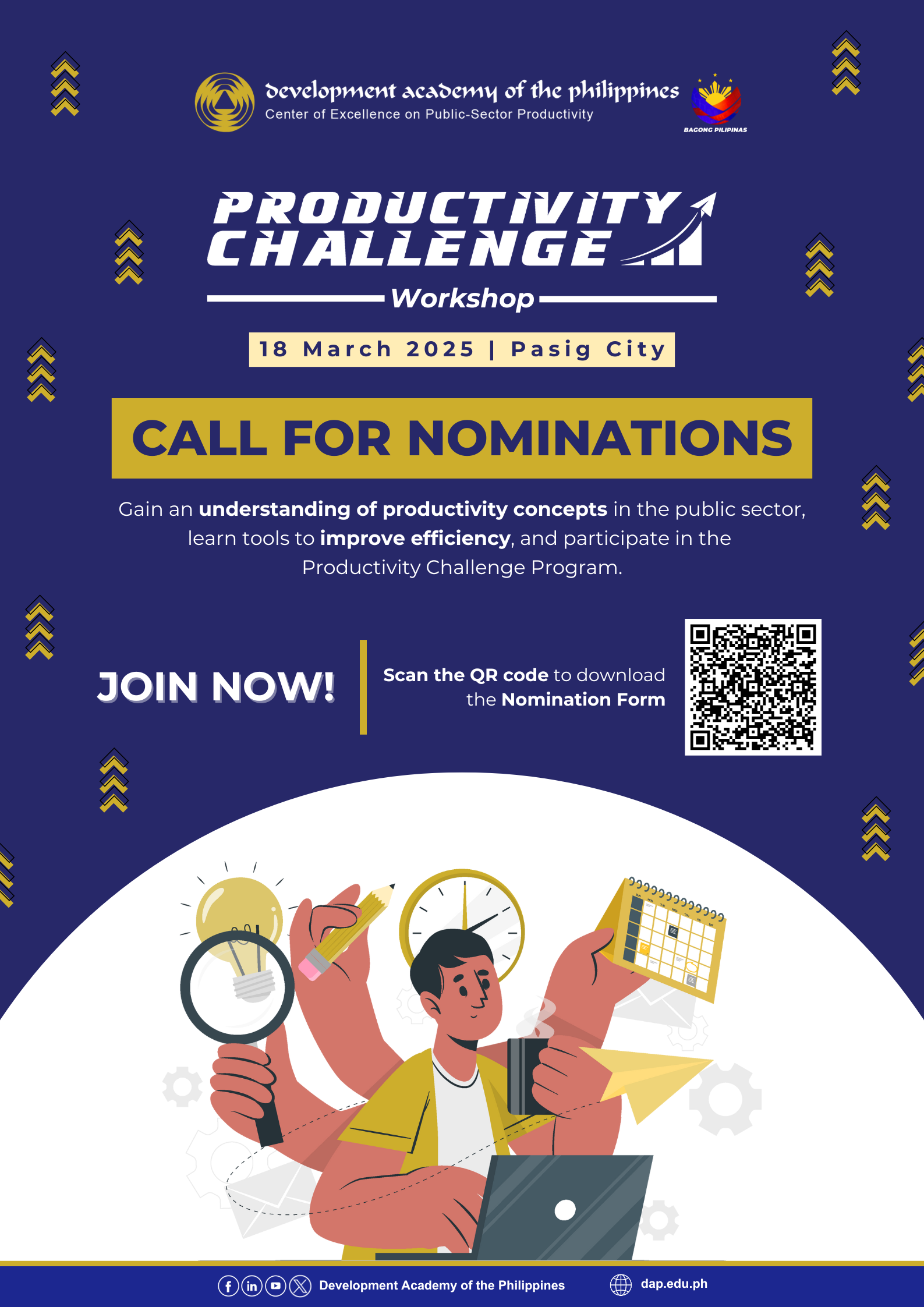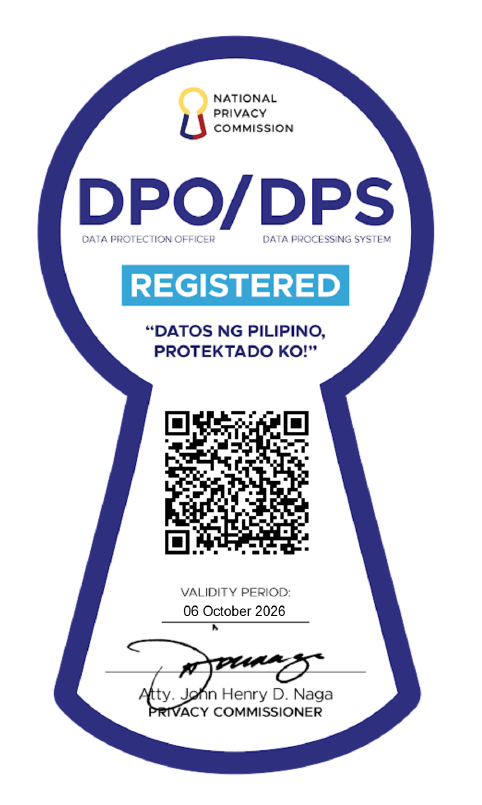
The participants of the fourth batch of the “Training for the Philippine Ports Authority on Good Governance and Phronetic Leadership” with resource persons Deputy Executive Director Eleazar E. Ricote of the Public-Private Partnership Center (seated eighth from left), Atty. Jose Tomas C. Syquia (seated seventh from left), and the DAP project team.
The Development Academy of the Philippines’ Center for Governance (DAP-CFG) concluded its series of training courses on Good Governance and Phronetic Leadership, and Data Analytics for the Philippine Ports Authority (PPA) in September 2019.
Since its first run in June, the training courses have capacitated a total of 263 PPA personnel nationwide, 128 under the leadership component and 135 under the data analytics component. The participants were division managers, engineers, terminal supervisors, harbor masters, port managers, internal auditors, data analysts, human resource officers, and administrative officers from the head office in Metro Manila and the various port management offices in Luzon, Visayas, and Mindanao.
The leadership component of the training course introduced the participants to the concepts of good governance and phronetic leadership, which included basic principles of governance, perspectives in governance and leadership, practical wisdom, knowledge creation, and best practices of effective governance and leadership in the public sector. The data analytics component, on the other hand explained the principles and best practices on data management in the public sector, the various quantitative and qualitative tools in analyzing and presenting data, and the role of data analytics in converting data into actionable insights that can be used in improving the policies and services of the PPA.
The PPA, through its Human Resource Management Department, plans to continue its partnership with the DAP by including the “Training on Good Governance and Phronetic Leadership” and the “Training on Data Analytics” in its 2020 training calendar, with the hope of contributing to the enhanced competency of public sector leaders in the Philippine Government on innovative leadership and management.
The resource persons for the training came from the National Economic and Development Authority, Office of the Vice President, Governance Commission for GOCCs, Civil Service Commission, Commission on Audit, Public-Private Partnership Center, Asian Development Bank, Department of Information and Communications Technology, Philippine Statistical Research and Training Institute, University of the Philippines Los Baños-Institute of Statistics, and the DAP.– Elluz Macalinao




